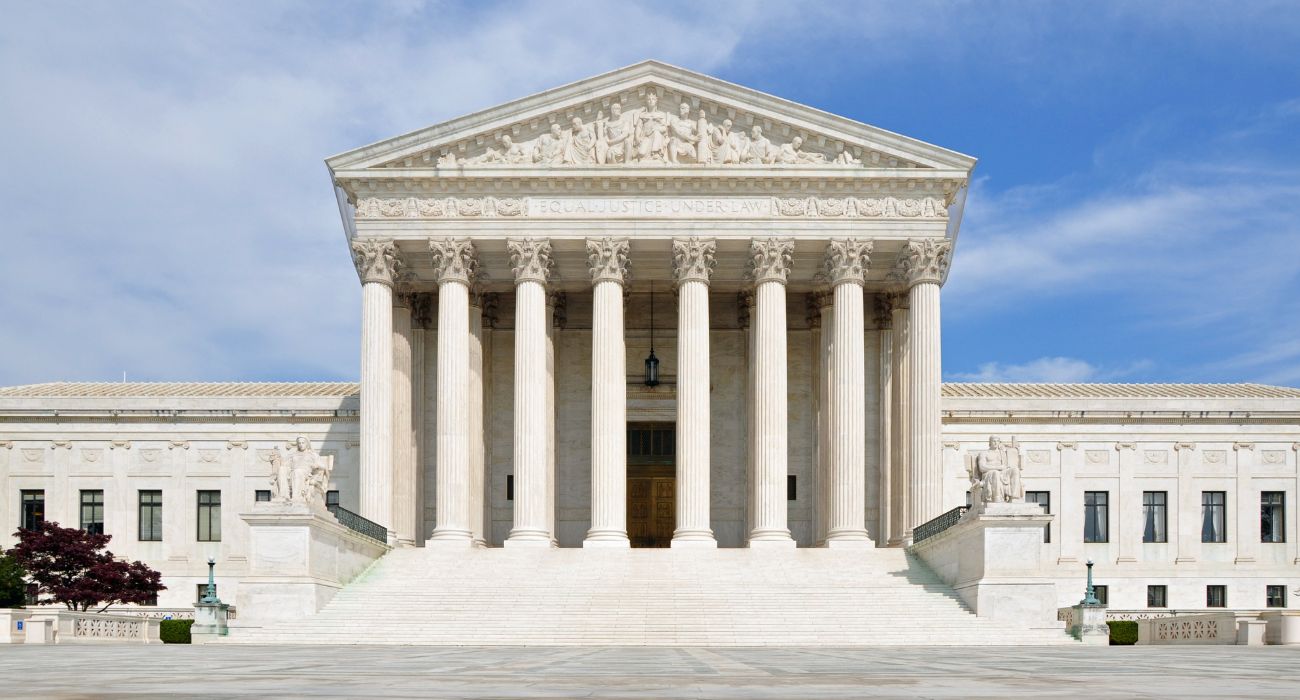The U.S. Supreme Court heard arguments Tuesday for a case that could radically change citizens’ right to sue if a government agency or government employee violates their civil rights under federal law.
The case stems from the alleged mistreatment of Gorgi Talevski, an Indiana man who was a resident of a government-run nursing home. Talevski’s family claimed that nursing home workers kept the man sedated with powerful drugs and eventually transferred him involuntarily to another facility.
Talevski’s family sued under Section 1983 of federal law, a broad statute allowing citizens to seek redress in the courts for potential violations of their civil rights.
Section 1983 reads, “Every person who, under color of any statute, ordinance, regulation, custom, or usage … subjects, or causes to be subjected, any citizen of the United States or other person within the jurisdiction thereof to the deprivation of any rights, privileges, or immunities secured by the Constitution and laws, shall be liable to the party injured in an action at law, suit in equity, or other proper proceeding for redress.”
Since the facility he resided in was funded through federal dollars, Talevski’s family has argued that Section 1983 applies to their case.
Lawyers for the Biden administration, however, have argued that the Federal Nursing Home Reform Act of 1987, which governs the care provided in taxpayer-funded nursing homes, never intended to allow for Section 1983 lawsuits.
Instead, Biden’s attorneys argue, the legislation provided an administrative process for seeking remedies to issues arising with the care provided in these government-funded facilities.
Initially, a federal district court dismissed Talevski’s family’s lawsuit, but upon appeal, it was allowed to proceed. The case now finds itself before the Supreme Court with major implications at stake for Section 1983.
The nation’s highest court can choose to settle the case narrowly, focusing on whether the Talevski family is entitled to a Section 1983 lawsuit in light of the redress provisions within the Federal Nursing Home Reform Act. Or, the court could decide more broadly on Section 1983 and severely limit access to it as an avenue for seeking redress by Americans on a number of topics.
Andrew Tutt, who represents the Talevski family, has argued that Section 1983 is a “last resort” for people like his current clients who are not able to hold government agencies and employees accountable through any other means.
Tutt went on to say that Section 1983 is a “life-saver for people who cannot actually make effective use” of administrative remedies like the ones outlined in the Federal Nursing Home Reform Act.
Supreme Court Justice Brett Kavanaugh signaled an openness to limit lawsuits like the one Talevski’s family brought against the government-run nursing home in which he formerly resided. He asked, “What’s wrong with an administrative process … if it’s comprehensive and works?”
Justice Sonia Sotomayor argued against ruling more broadly and neutering Section 1983’s applicability to other issues that citizens may have with government actors.
“Neither the federal government nor the states can possibly investigate and remedy every violation of these rights that are given to people,” Sotomayor argued.
She later added that federal law “speaks clearly” that people have a right to go to court. “Why shouldn’t we just respect our precedent?” she asked.
The precedent in question is decades of case law supporting the applicability of Section 1983 to various potential civil rights violations of the American people by its government.
Whether the fate of Section 1983 will be decided narrowly or broadly, it will be determined soon. Either way, Americans will face the implications for years to come.






